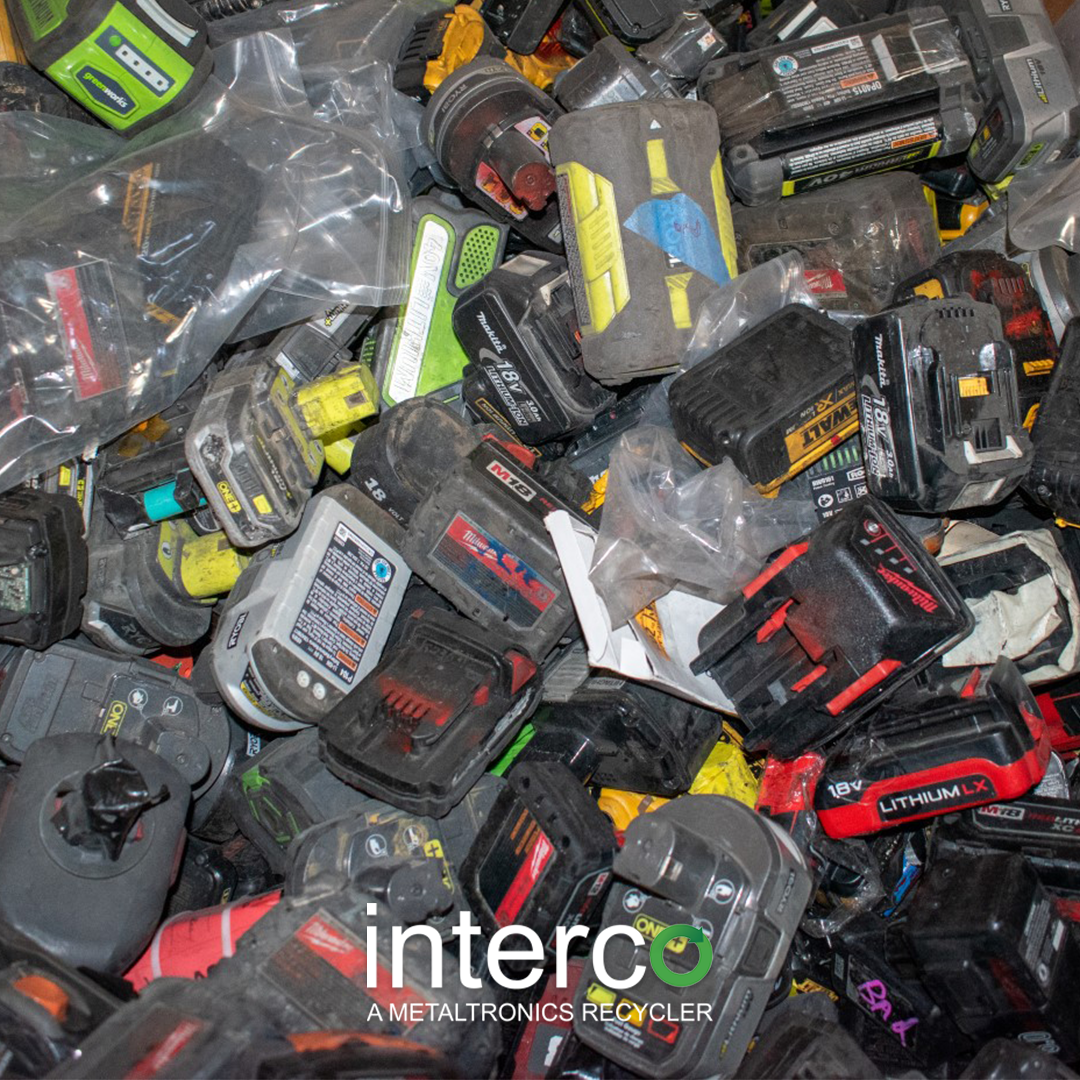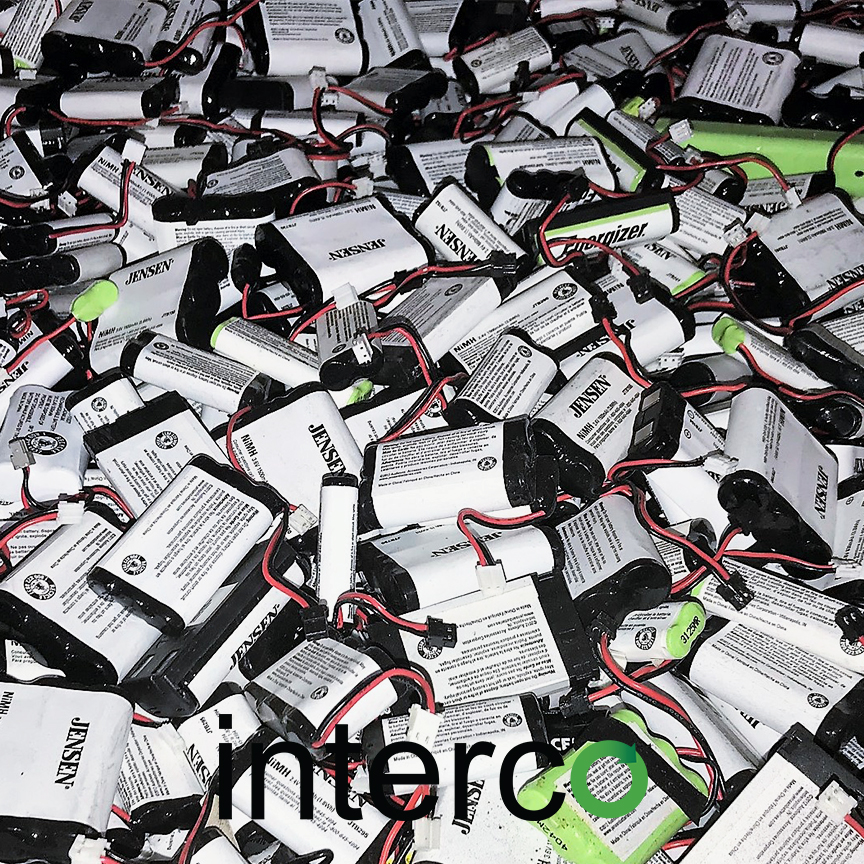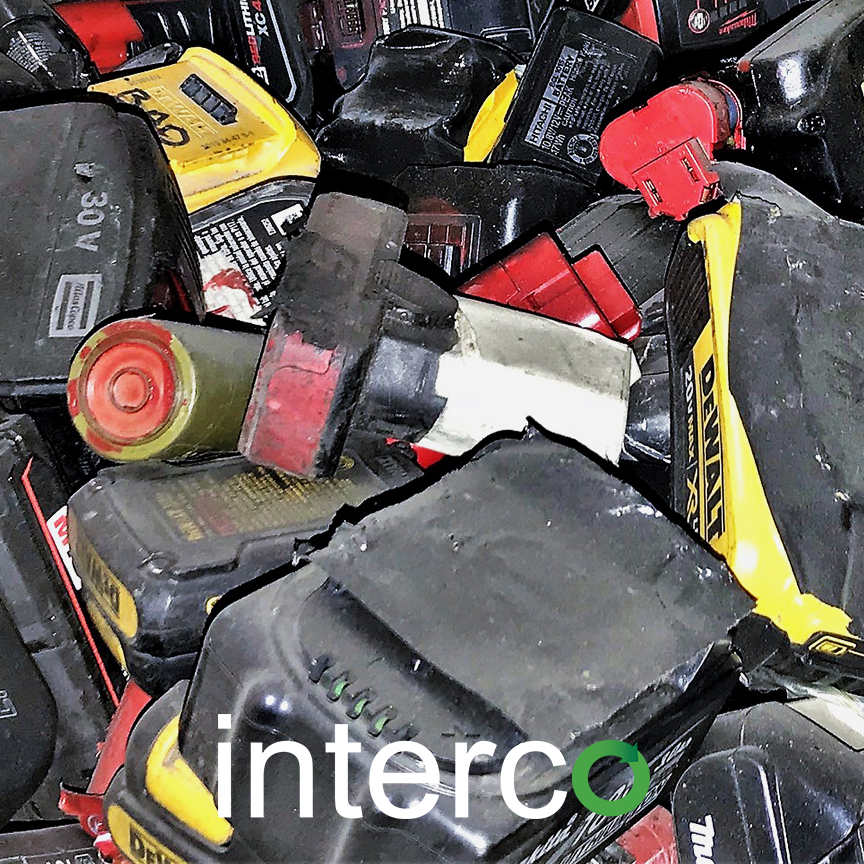Lithium Ion Battery Recycling
What are Lithium Ion Batteries?
Lithium ion batteries are a type of rechargeable battery. They are the main power source for things like:

- Electric vehicles
- Solar power storage
- Emergency power backups (UPS)
- Power tools
Some metals that make up lithium ion batteries include nickel, cobalt and copper. There are also different types of these batteries that contain…
- Lithium Cobalt Oxide (LiCoO2)
- Lithium Nickel Cobalt Aluminum Oxide (NCA)
- Also, Lithium Nickel Manganese Oxide (NMC)
Eventually, lithium ion batteries slow down and must be replaced. This is usually due to aging, overuse and overcharging. Hence, recycling lithium ion batteries is crucial to reusing valuable materials, reducing space occupied in landfills, protecting natural resources and reducing pollution. There is even a potential profit to be made by selling used lithium ion batteries to Interco for recycling. Interco sells these batteries too.
Now that lithium ion batteries themselves have been examined, it is vital to understand the recycling of lithium ion batteries process.
How to Recycle Lithium Ion Batteries
In order to reuse the valuable materials contained within lithium ion batteries, one must understand lithium ion battery recycling. This process consists of:

- First, recycling companies buying or selling scrap lithium ion batteries. As a result, they obtain cobalt, nickel and copper.
- Then, these companies deactivate the batteries. This must happen before the recycling procedure begins.
- Afterwards, the recycler places the lithium ion batteries in a special room. Consequently, this room is oxygen-free.
- Subsequently, the process of extracting metals from their ores occurs (this is called hydrometallurgy).
- Next, the process of using aqueous solutions to extract metal from other metal bearing materials occurs (this is called leaching).
- Furthermore, the battery components are separated into three different categories. These categories include cobalt, steel and aluminum, copper and plastic.
- Finally, recycling companies sell the recycled materials.
Since the recycling procedure has been discussed, one must understand why it is so necessary to recycle lithium ion batteries.
The Importance of Lithium Ion Battery Recycling
The recycling of lithium ion batteries provides several positive environmental impacts. Lithium ion battery recycling:

- Reuses valuable materials
- Reduces space occupied in landfills
- Protects natural resources
- Reduces pollution
There are several reusable materials within lithium ion batteries including cobalt, nickel and copper. By reusing these materials, less space is occupied in landfills which protect natural resources. Subsequently, this leads to overall pollution being reduced.
People, organizations and governments are all moving toward a greener world. Recycling of lithium ion batteries is huge step forward in making this goal a reality.
Conclusion
Lithium ion batteries are a power source for electric vehicles, solar power storage, power tools and more. They also contain an abundance of reusable materials. Recycling lithium ion batteries reuses valuable materials, reduces space occupied in landfills, protects natural resources and more. Interco even purchases and sells lithium ion batteries to anyone interested in selling or buying.
To learn more how professionals recycle lithium ion batteries, click here to contact Interco.